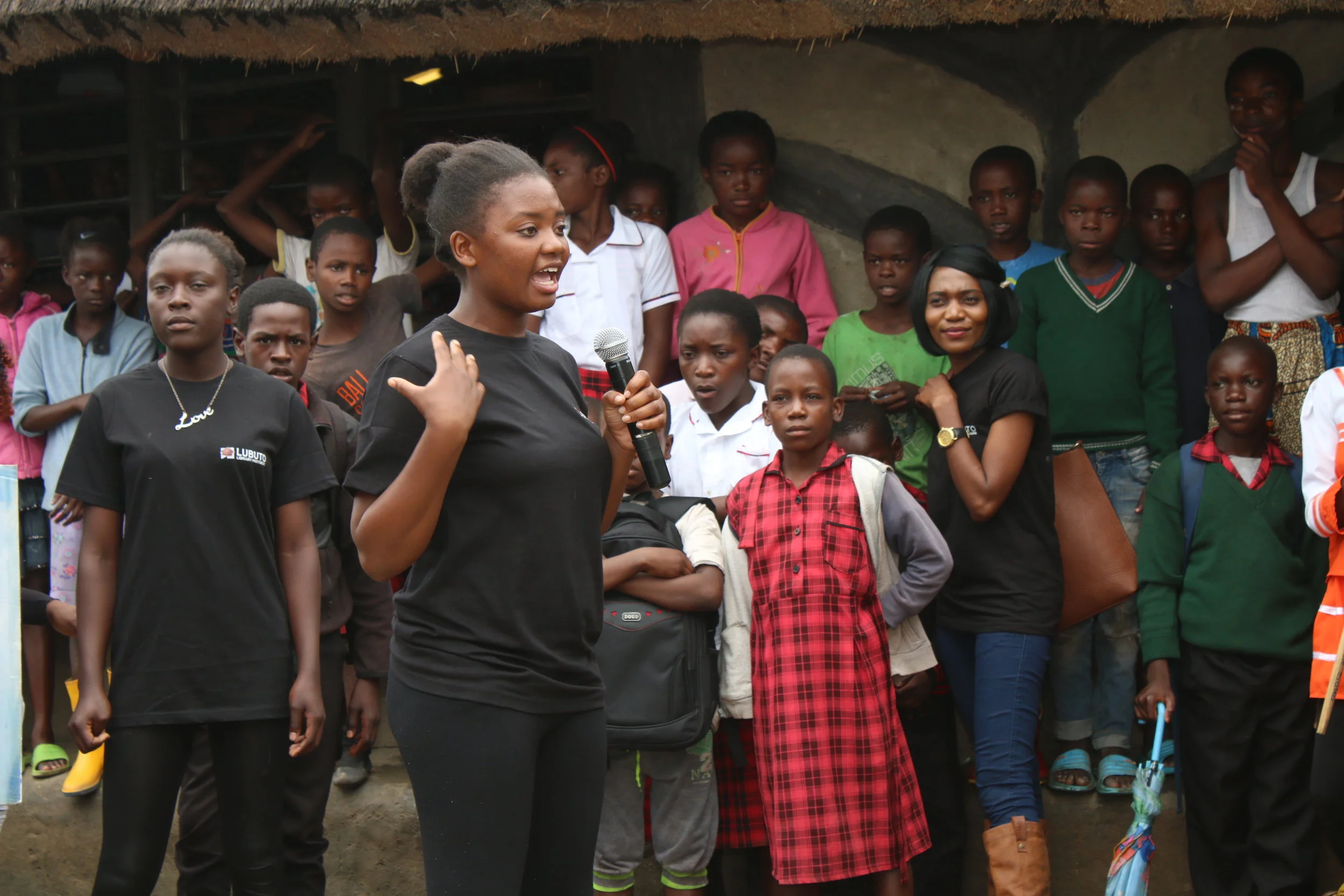Staying in School
“Encouragement should come from all angles. Then you find that one will be able to make it in their studies because there is no one discouraging you.” (Bupe, age 15)*
In July 2016 Lubuto was awarded a DREAMS Innovation Challenge grant of nearly $800,000, funded by the U.S. Department of State and managed by JSI, to support our two-year project focused on keeping adolescent girls in secondary school, which was discussed in our November 2016 newsletter. Research shows that for each additional year that a teenage girl in southern Africa spends enrolled in secondary school, her likelihood of contracting HIV drops significantly.
But keeping adolescent girls in secondary school is not a simple issue. Around 27% of the girls served by Lubuto Libraries are out-of-school, and they drop out of secondary school for a variety of reasons. In order to develop effective programming under DREAMS, we knew that we needed to directly involve out-of-school adolescent girls as program co-designers. To that end, multiple focus group discussions have been held with groups of adolescent girls between May and December of 2016 (quoted below).
Many girls told us that they needed funds to pay their school fees (approximately $200 USD/year) because of parental illness or unemployment. Girls who have lost one or both parents commonly live with extended family members who are financially overburdened and are unable or unwilling to pay an additional set of school fees. Under DREAMS, LLP has introduced a crowdsourced scholarship program offering full tuition support based on financial need.
“My sister doesn’t have money to take me to school[…] My father died recently, in 2016. My sister also doesn’t have money. She’s only working as a maid. My sister buys tomatoes for me to sell so that I can fundraise, maybe I could pay and go back to school.” (Tamara, 17)
For girls who are living in extreme poverty, there can be immense pressure to resort to prostitution or early marriage as sources of financial support. As a result, many girls become pregnant at young ages. Under DREAMS LLP has created a Family Literacy program that targets young mothers with the academic catch-up they need to re-enter formal education.
“Most of my former friends are now into prostitution and I usually think to myself that maybe I should go back to that group and joined [sic] them so that I could fundraise for my school fees. But then my other sense tells me no […].” (Chileshe, 16)
In the face of these (and other) challenges and pressures, the girls in our focus groups maintained a strong sense of determination to succeed. They told us how important it is to have support from peers and friends, inspiring us to include a peer leadership training component in our DREAMS mentoring program.
“There is one particular [friend] who is so much close to me and she really wants me to go back to school. She even buys books for me. Whatever she writes she gives to me to write also, so I have all the notes. When she writes a test at school she gives me to write too. We study together, we do almost everything together.” (Rita, 14)
They also expressed the need for guidance from adults besides their parents. LLP’s DREAMS mentoring program will use young women as role model mentors to facilitate small-group discussions and lead motivational field trips to educational and cultural destinations around Lusaka.
“My mother will start controlling me, “stop that stop that.” Me, I cannot hear what my mother [is] telling me, “don’t hang out with that group,” but someone older [who is] like my mother, I will hear what she’s saying.” (Natasha, 13)
As we start rolling out DREAMS programs in February, we feel privileged to have bright, dynamic new staff members and dedicated volunteers leading programs that they have co-designed with the resilient and motivated girls in Lubuto Libraries.
“Because [my family] used to stop me so I want to do something that will shock them when I grow up and finish school.” (Loveness, 15)
You will soon be able to support these programs directly through a scholarship fund that matches donors with individual girls.
*All identifying details have been changed to protect the anonymity of focus group participants.

